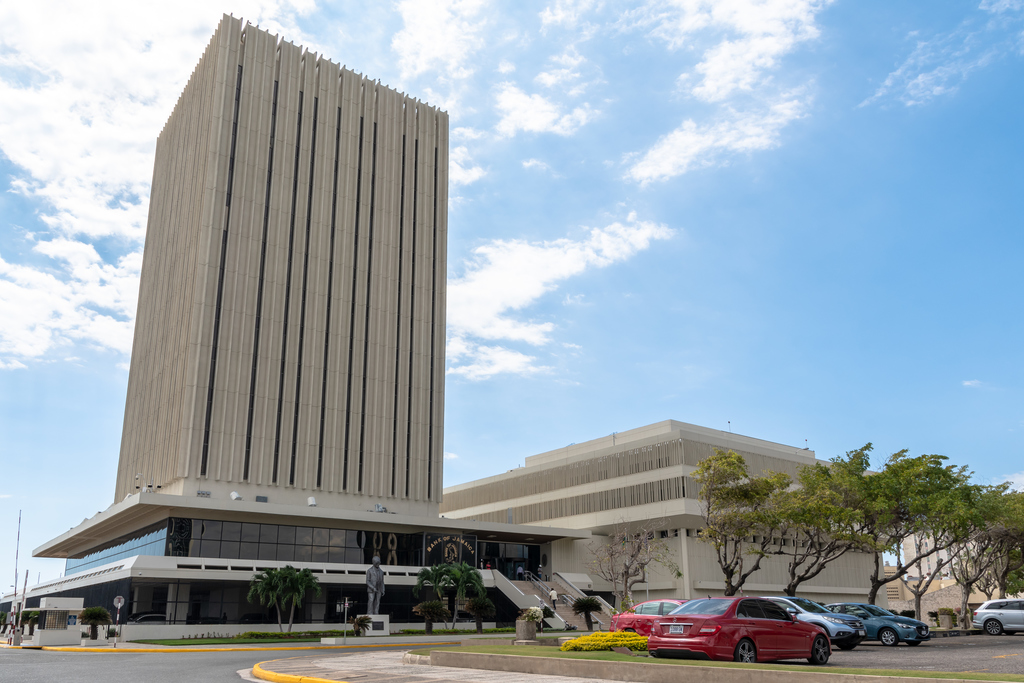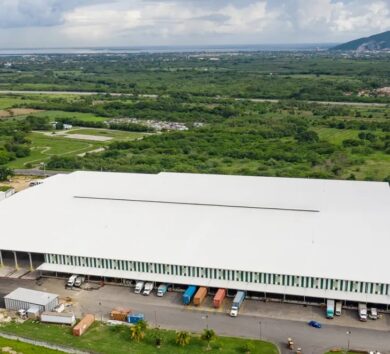

The recently concluded parliamentary debate on the fiscal management of the Jamaican economy has raised the question – how to spur growth during a time when the COVID pandemic has deleteriously impacted the economy?
The Government has unveiled a J$830-billion budget for fiscal year 2021-22, J$20 billion less than the previous year.
Opposition Spokesperson on Finance Julian Robinson and many commentators hold the view that Dr Nigel Clarke, minister of finance and the public service, is being too conservative and that he ought to have increased the budget by an additional J$21.5 billion in an effort to spur spending, thus precipitating internal growth.
Life and debt
The overarching factor here is Jamaica’s national debt which stands at around US$14.4 billion and, according to the International Monetary Fund (IMF), Jamaica’s debt ratio is expected to increase to 97.6 of GDP given the severe economic contraction due to COVID-19.

Many Jamaicans today cannot recall a time of growth and prosperity. All they know is life in a country beset by huge debt, constant currency devaluations, going to the IMF cap in hand and economic turbulence. A concerted effort has to be made to avoid the recurring debt trap inhibiting economic growth.
The minister of finance gave an incisive account of the impact of COVID when he said in Parliament: “The COVID-19 pandemic generated both a health crisis and an economic crisis during the current fiscal year 2020-21. The pandemic has impaired the health of thousands of Jamaicans, strained the health system and led to the reduction of economic activity across Jamaica, including the virtual shutdown of the tourism sector for much of the year. This translated into a significant loss of revenue for the government and simultaneously to the need for new expenditure to address the health consequences while cushioning the social and economic impact.”
Steady hand on the tiller
Given this predicament then what should be given top priority to ensure the welfare of Jamaicans and that the economy does not go off the rails? This will require prudence, diligence and a steady hand on the tiller during choppy seas.
Let’s be clear, fiscal space is constrained. Last year, the Government lost J$73 billion in revenue and had to find J$40 billion for COVID expenses. Tourism, the country’s main foreign exchange earner, suffered a US$2.5-billion loss, recording its worst numbers in 30 years.
To incur more debt at this time in order to induce more spend would place the more vulnerable in the country into an interminable economic crisis. It would be catastrophic if Jamaica, by adding to its debt burden, was unable to meet its obligations to the multilaterals and other sovereign bondholders and be forced to default.
Back in 2013, when the country faced major fiscal instability, poverty went up to 24 per cent. During that year, Jamaica’s debt ballooned to 132 per cent of GDP, its exchange rate fell off a cliff and the country scurried back to the IMF for relief. Less than a decade later, this cannot be allowed to happen again.
To take on debt now in a cavalier fashion, and kick the can down the road, will place the burden on future generations of Jamaicans, thus strangling future growth.
Turning to the primary surplus
There are those that argue that the primary surplus projection of 6.1 per cent is perhaps high and that reducing it to 5.1 per cent would free up more expenditure. If a country has larger levels of income relative to current spending, it is said to have a primary surplus; if a country has larger levels of current spending relative to income, it is said to have a primary deficit.
But, given Jamaica’s huge dependence on imports, will there be a net benefit to the economy by utilising the primary surplus?
“The US is a very, very different country than ours. It is very wealthy, with a very diverse economic base, and it is quite self-sufficient. Trade is approximately 20 per cent of GDP. For Jamaica, trade in goods and services is over 80 per cent of GDP.”
Dr Nigel Clarke, minister of finance and the public service
Clarke made note of this in his closing budget presentation earlier this week.
“We have to make policy that suits the particular provable realities of Jamaica. Our conversation is happening against the backdrop of the policy action by the United States which no doubt has had an imbalance on some.
“The US is a very, very different country than ours. It is very wealthy, with a very diverse economic base, and it is quite self-sufficient. Trade is approximately 20 per cent of GDP. For Jamaica, trade in goods and services is over 80 per cent of GDP.”
Clarke therefore concludes that relative to other countries such as the US, incrementally boosting consumption in Jamaica has much less of an impact on economic growth unless it is targeted at the very poorest quintile where the expenditure basket has the most domestic content.
“Speaking more technically, the fiscal multiplier is a term that measures the impact of discretionary fiscal policy on economic output. It is simply the ratio of the change in economic output from change in a particular type of expenditure.
“The general findings are that, in developing countries like ours, increasing consumption expenditure most times does not have a statistically significant impact on growth of economic output,” said the minister of finance during his closing Budget presentation.

Dennis Chung, chief executive officer of Supreme Ventures Services Ltd, who is also a social and economics commentator, made a prescient observation writing in his weekly column back in 2015 which supports the finance minister’s thoughts on the matter.
Chung wrote: “What is the best solution to the primary surplus that will ensure sustainable growth and development? The most important consideration is that of sustainable growth and development and not just to think about short-term impact solely. Even if the primary surplus is reduced from 7.5 per cent of GDP to zero per cent of GDP, this by itself does not guarantee growth and, in the past, we have run primary surpluses which are lower than 7.5 per cent and with much higher fiscal deficits. After doing that for many years we still have not seen sustainable growth rates.
“There is therefore no evidence that allowing greater funds for government expenditure will guarantee any sustainable levels of growth and, in fact, it has worked against us as we have funded the increased government spending through debt which has put us where we are today.
“Even if we were to reduce the primary surplus requirement today, it would mean that we would have to do so either by 1) increasing tax revenues or 2) increasing debt. Option two is certainly not desirable, as it would mean a reversal of what we have achieved so far and would result in a longer period of adjustment and potential hardships.”
High wire act
It is a very delicate act- keeping the economy going while fighting the ravages of COVID at the same time as fostering sustainable growth.
Temporary palliative measures to induce the economy in the short run at the expense of further nominal debt may very well be far more injurious to Jamaica.
Demands and expectations must be tempered at this time. Jamaica cannot do what the US has done in doling out bailouts to certain sectors. Relief for the entertainment sector from the national treasury must remain a dream. Increased public sector wages will have to be put on hold for now.

A year later, no one would have guessed that the world would be in the same position, if not worse than spring of last year. With variants, increasing waves of COVID and problems with vaccine distribution, no one can tell when the world will be coming out of this contagion. Therefore, the minister of finance has to be flexible and carefully evaluate his options.
Things could get a lot worse before they get better and the people who will bear the brunt of the hardship will be the poor and less fortunate.
What can I use in my tool kit?
The decision not to raise taxes did not draw much gratitude or fanfare but it will help many. With tourism receipts drying up and a near 20 per cent contraction of the economy, revenues have to come from somewhere. This was an act of benevolence on the part of the Minister of Finance when the inclination would have been to go the taxation route.
It was also a good move to reduce GCT from 16.5 per cent to 15 per cent, thus putting J$14 billion into the hands of Jamaican consumers without discombobulating the economy.
Priorities
So, given these turbulent times, a raging pandemic and a battle to secure vaccines, what should the minister of finance’s priorities be in ranking order?
He outlined them as follows:
- Vaccination of the population against COVID-19 and winning the battle against the virus
- Strong economic recovery
- Social support for the vulnerable and those impacted by the pandemic
- Continued financing of the provision of the public goods and services on which society and the economy depend
- The preservation of stability which is a pre-requisite of all other priorities

Some good financial husbandry has allowed the government to move expeditiously in mitigating the tremendous damage wrought on the economy by COVID-19.
It was able to use a one-off J$33-billion dividend from the Bank of Jamaica to help fund the J$60 billion Social and Economic Recovery with Vaccine for Jamaica Programme (SERVE) and activate this relief package relatively quickly.
“We were fortunate to have J$90 billion of extra resources this fiscal year and J$33 billion of extra resources programmed for the next fiscal year. A total of approximately six per cent of GDP in fiscal spending to keep the proverbial “trains running on time” and to provide economic, social and medical support to the vulnerable population in the country.
“For a country with the scale of our fiscal problems, this is a considerable achievement. We should be proud of what we have been able to achieve while not having any nominal debt increase.”







Comments